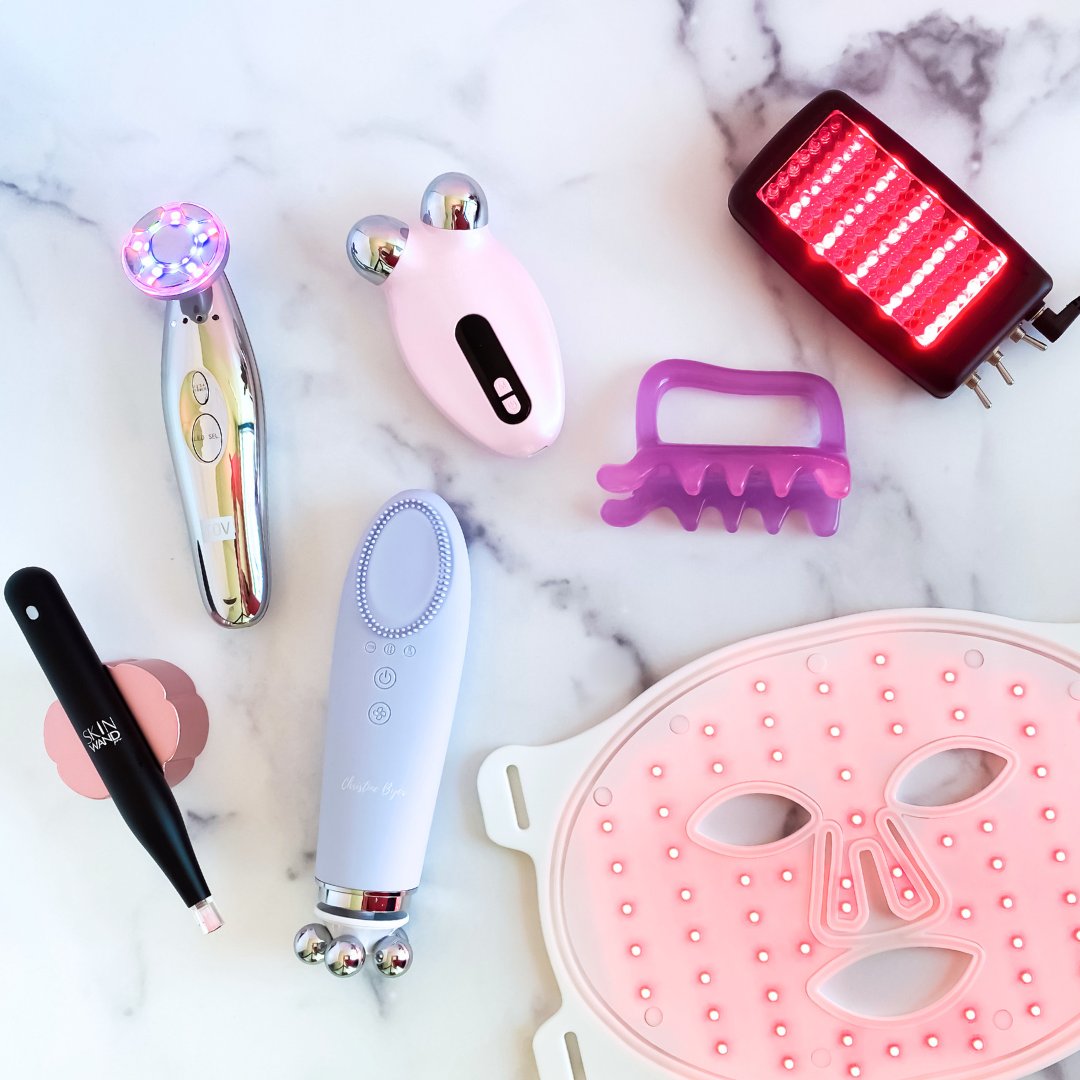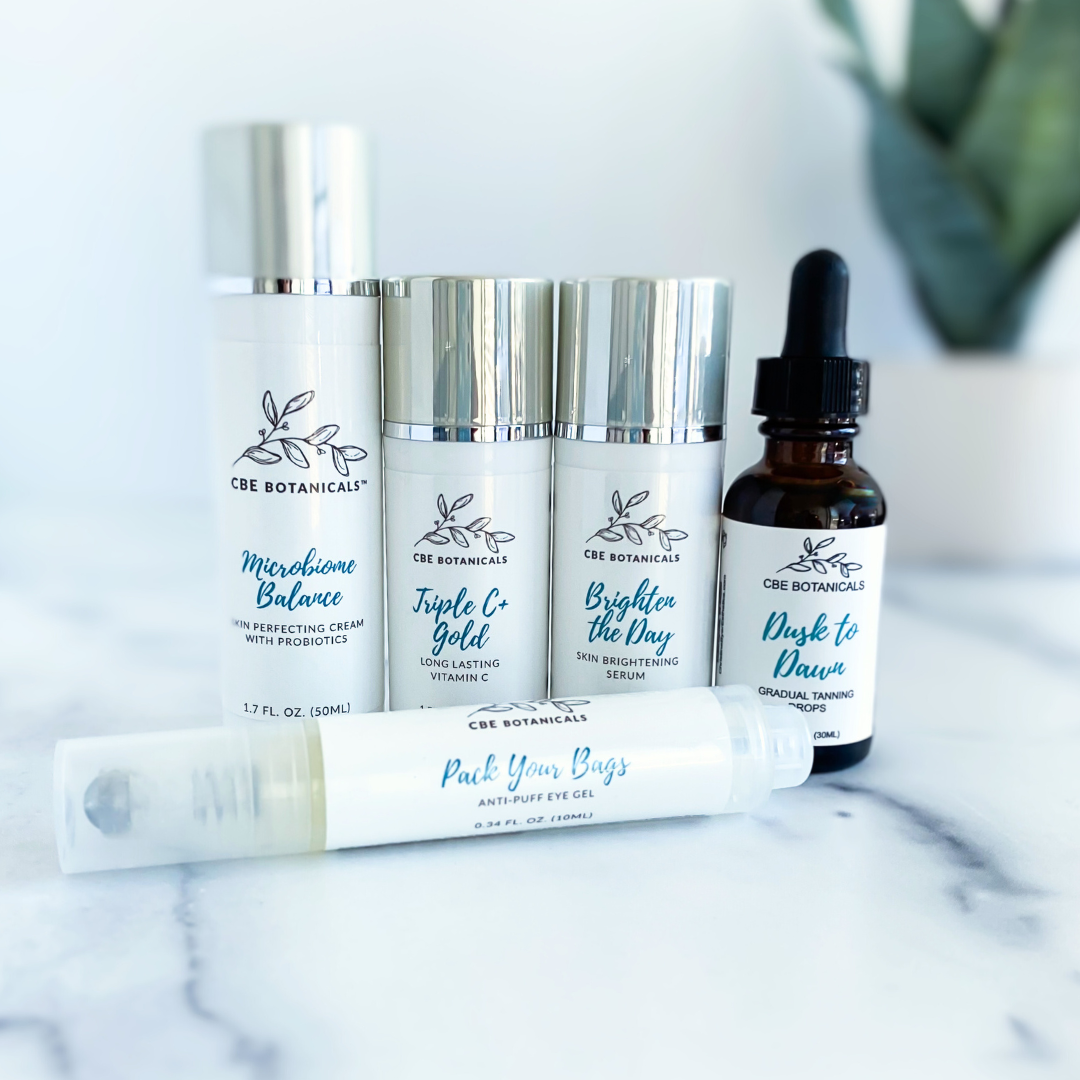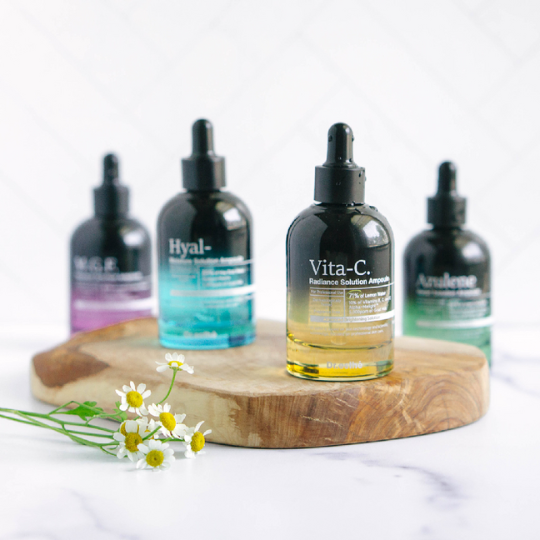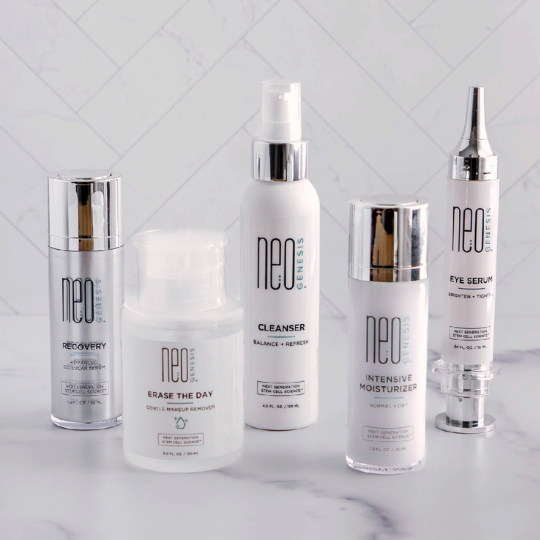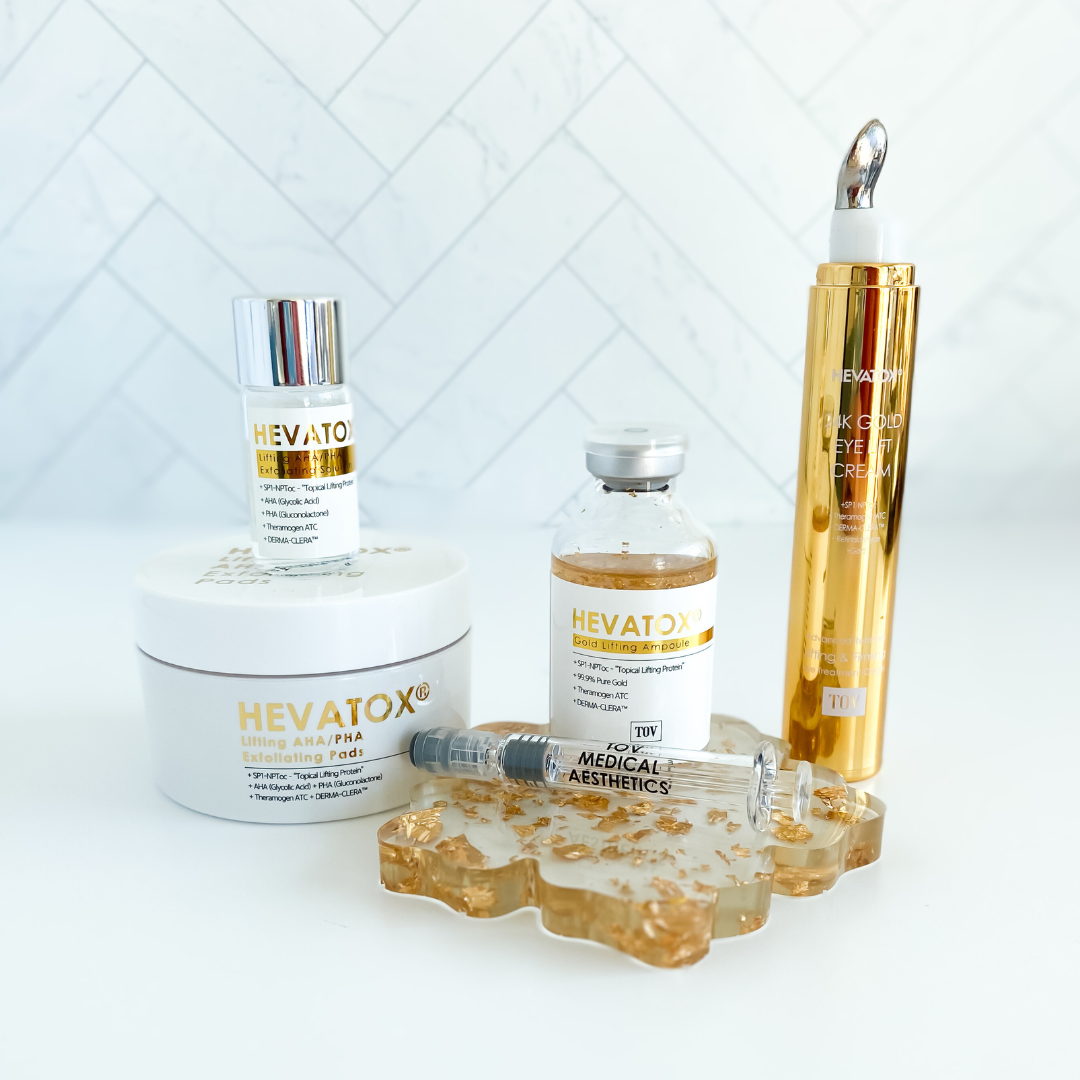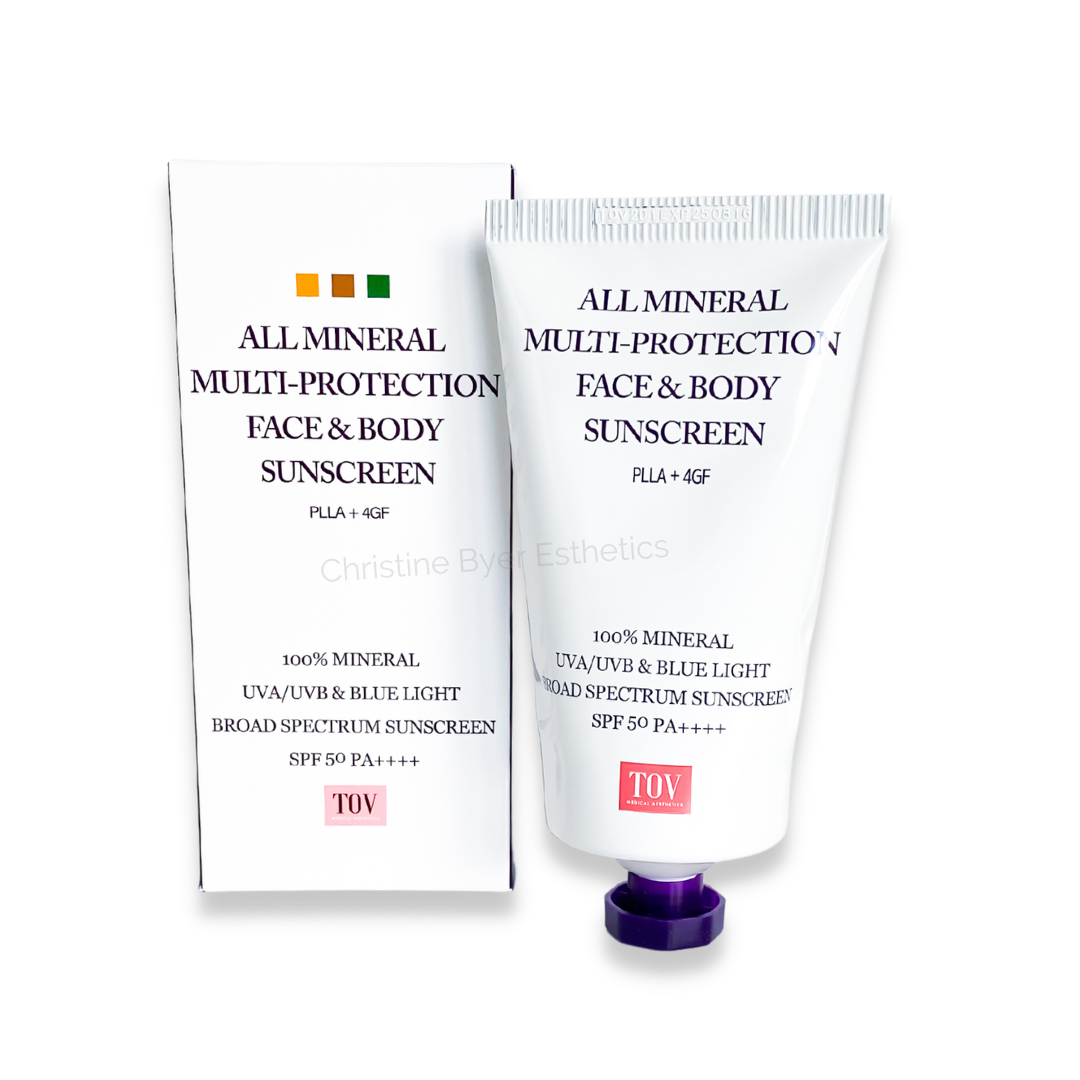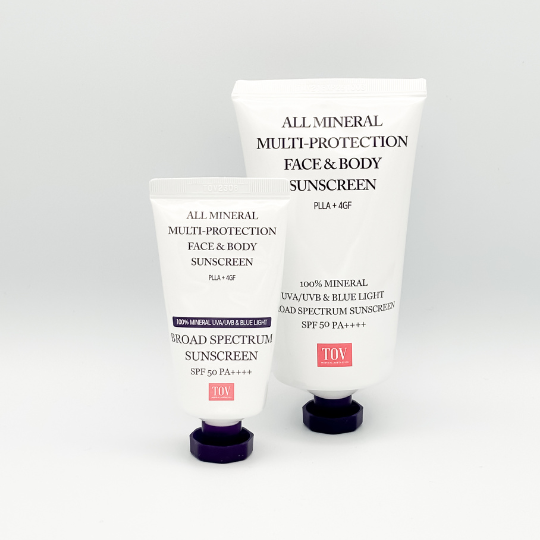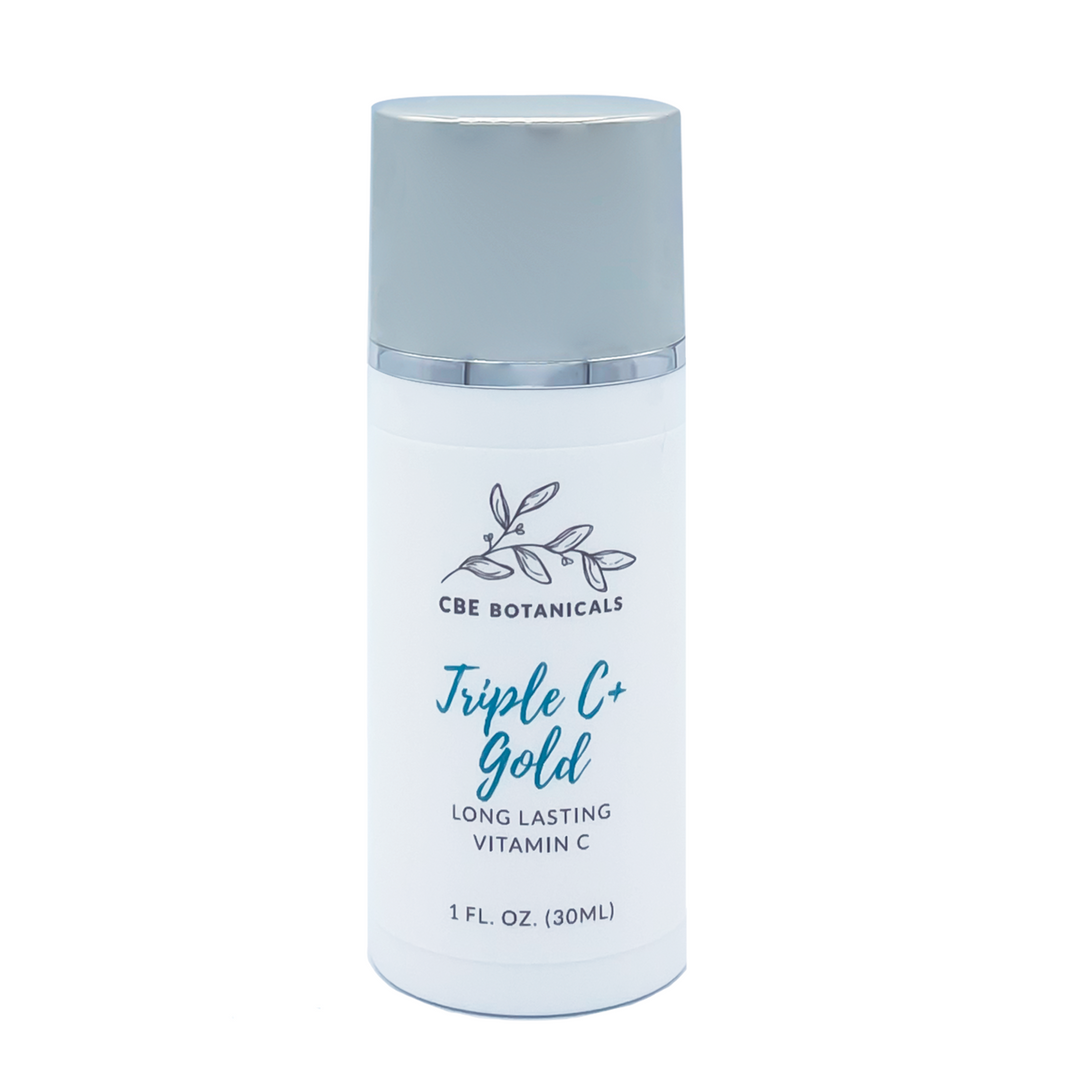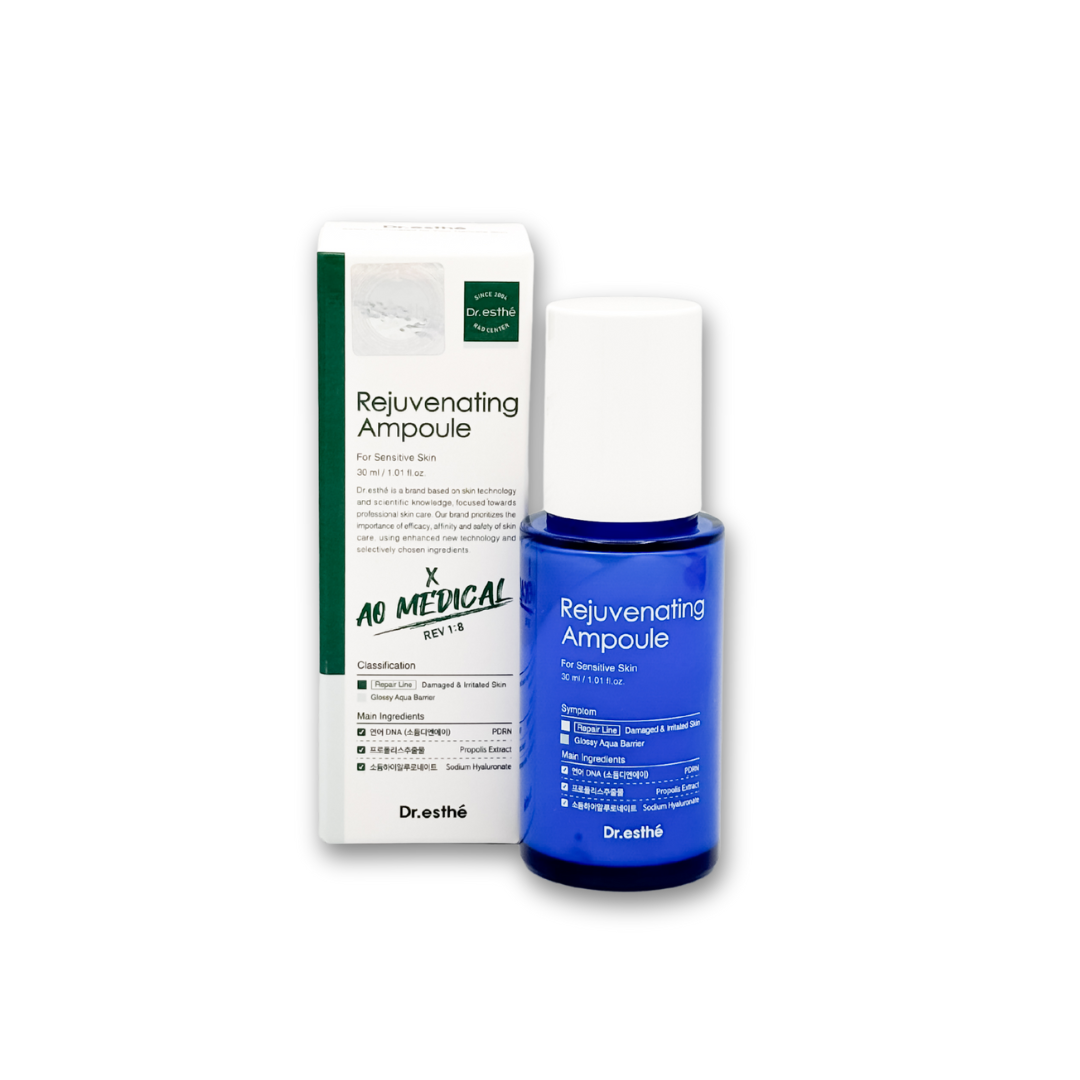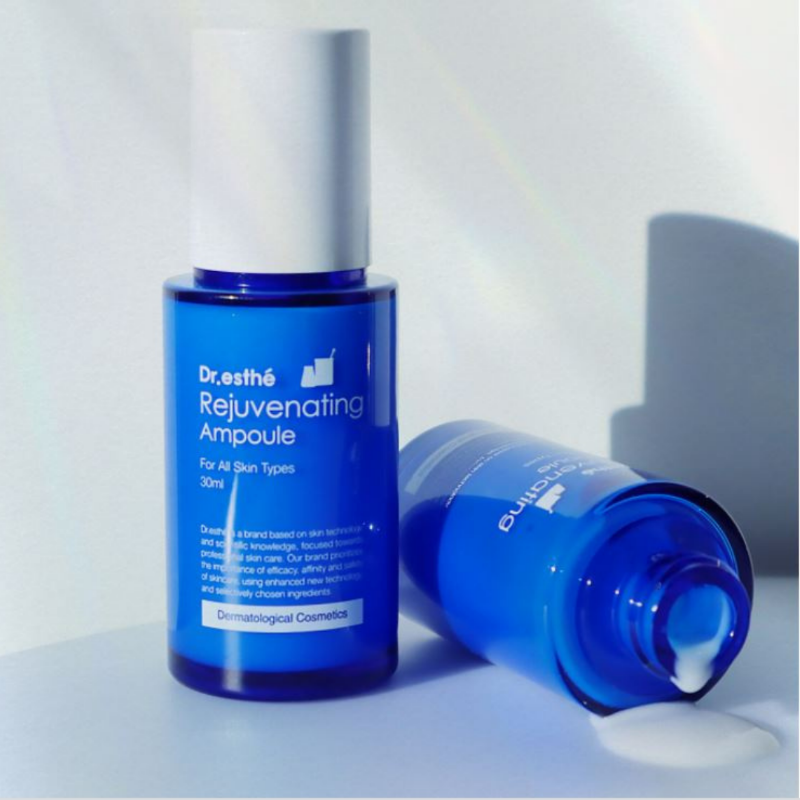- Blue light is a part of our daily life, but unprotected exposure may have long-term consequences.
- Long-term exposure to blue light has been found to cause digital aging.
- The right skincare can help defend your skin against continued exposure from devices.
Technology has developed at such an incredible rate over the last fifty years that scientists are having a hard time keeping up. Changes that might have taken ten or twenty years to develop a century ago now evolve dramatically from year to year. That's why we are only just starting to discover the effects of blue light on the skin from hours of digital use. Now, I'm here to help you deal with all that blue light in a healthier way for your skin!
What is Digital Aging?
"Digital aging" is a newer term, coined as scientists discover more about the effects that light from screens has on our skin.
All visible light gets absorbed into the skin, but depending on its wavelength, it penetrates at different depths. This is because our skin has photoreceptive chromophores, cells that most of us know as melanin. These cells are activated by interaction with light at a variety of degrees based on the light's wavelength and color. When melanin interacts with sunlight, we begin to either burn or get tan, and either way, our skin cells age faster. Although blue light doesn't have as marked an impact as a day in the sun, it still stimulates negative growth in these kinds of photosensitive cells.

How Blue Light Impacts Your Health
Blue light is being studied for harmful effects on several different areas of your health. These include damage to your eyes and your skin, and especially your sleep cycle. This is because our circadian rhythm is significantly impacted by any kind of light, particularly blue light. It triggers alertness in your brain, which can be a good thing when done at the right times during the day! When your brain is triggered by blue light, it's working to help memory and increase brain function. It can also trigger the release of dopamine, helping elevate your mood.
The problem is that blue light from screens after the sun has set begins to negatively impact our circadian rhythm, making it harder to get to sleep and then sleep deeply once you have fallen asleep. I suggest decreasing screen time at night as one of the best ways to stop these negative impacts on your daily rhythms and sleep schedule. And if it's skin aging that you're worried about, I have some great suggestions for products to help reduce blue light damage.
How Blue Light Impacts Your Skin
Blue light from digital technology has recently been shown to also interact with your photoreceptive skin cells. This causes faster aging, particularly on your face and neck, since these are typically directly in front of screens. It was also shown to produce cutaneous hyperpigmentation in the skin. This can cause uneven pigmentation of the skin over a long period, increase wrinkles, and even cause extra sagginess to the skin.
Take Defensive Measures Against Blue Light
There are multiple ways to protect yourself from blue light. To help your eyes,
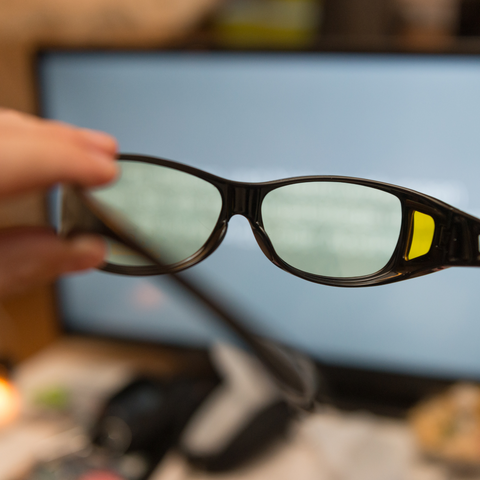
many people wear glasses that help filter the blue light before it hits the cornea. Adding a blue light screen protector to your devices is another way to go if you don't enjoy glasses!
Ultimately, I recommend lowering the brightness of your device and decreasing the time you spend in front of it to help prevent skin issues. You can address the root of the problem by cutting time spent on your phone, laptop, TV, and tablets.
However, if the time you spend in front of the screen is non-negotiable for you, there are other solutions to help protect your skin from the effects of blue light.
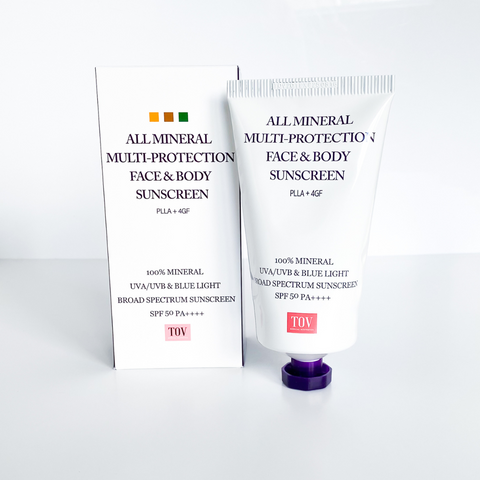
The Rise of Anti-Blue-Light Skincare Products
Luckily, there has also been a rise in skincare products that help us to protect ourselves from our own technological advancements! For instance, wearing sunscreens with zinc oxide as an ingredient helps reflect harmful UVA/UVB rays and protects the skin from blue light. This all-mineral favorite of mine by House of PLLA+ is anti-oxidant enriched and contains all titanium dioxide and zinc oxide, forming a protective barrier on the surface of the skin to help shield your skin from negative interaction with blue light wavelengths.
To even more effectively combat the effects of blue light on the skin, I recommend adding a Vitamin C serum to your routine with a product like the Triple C Gold. This product targets areas of aging skin such as wrinkles and age spots, and helps even out skin tone and texture by encouraging collagen production.
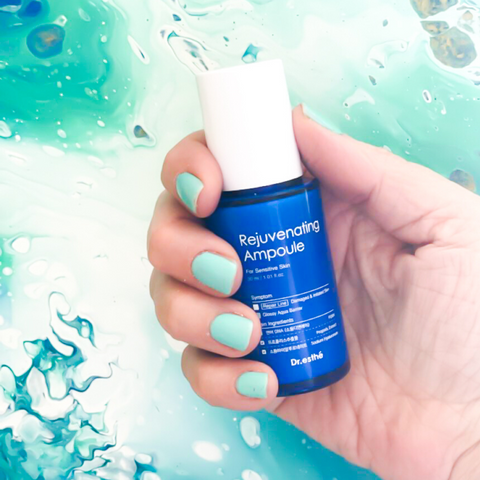
My final product recommendation is the Rejuvenating Ampoule product from Dr. Esthe. This serum directly works to heal skin using an ingredient called PDRN, a salmon derivative. That means it targets those areas that are being slowly broken down by blue light to heal them before they even become noticeable issues.
Frequently Asked Questions
- What are the benefits of using skincare products with antioxidants to combat blue light?
- Antioxidants like vitamin C help neutralize the free radicals and oxidative stress caused by blue light exposure. This can prevent or reduce premature signs of aging like wrinkles, fine lines, and uneven pigmentation. Antioxidant-rich serums and moisturizers reinforce the skin's natural defenses against blue light damage.
- How does the Rejuvenating Ampoule from Dr. Esthe work to repair blue light-induced skin damage?
- The Rejuvenating Ampoule contains PDRN, a bioactive compound derived from salmon DNA. PDRN has been shown to stimulate cellular regeneration and repair, helping reverse the visible signs of of dullness, loss of elasticity, and hyperpigmentation. This serum helps "heal" the skin at a deeper level.
Defend Yourself Against Your Device
Adding certain products like the ones mentioned above into your regimen can be the key to protecting yourself from your devices. If you want to get even more support while on your skincare journey, you should join me at the Christine Byer Beauty Club. I want to offer personalized support to everyone to help them find confidence in their skin, which is why I offer a 14-Day FREE preview with full access to everything in the Club. You'll have access to savings and even an opportunity to win a FREE consultation with me. And if you don't find value in your membership? You are free to cancel within 14 days at no charge.


